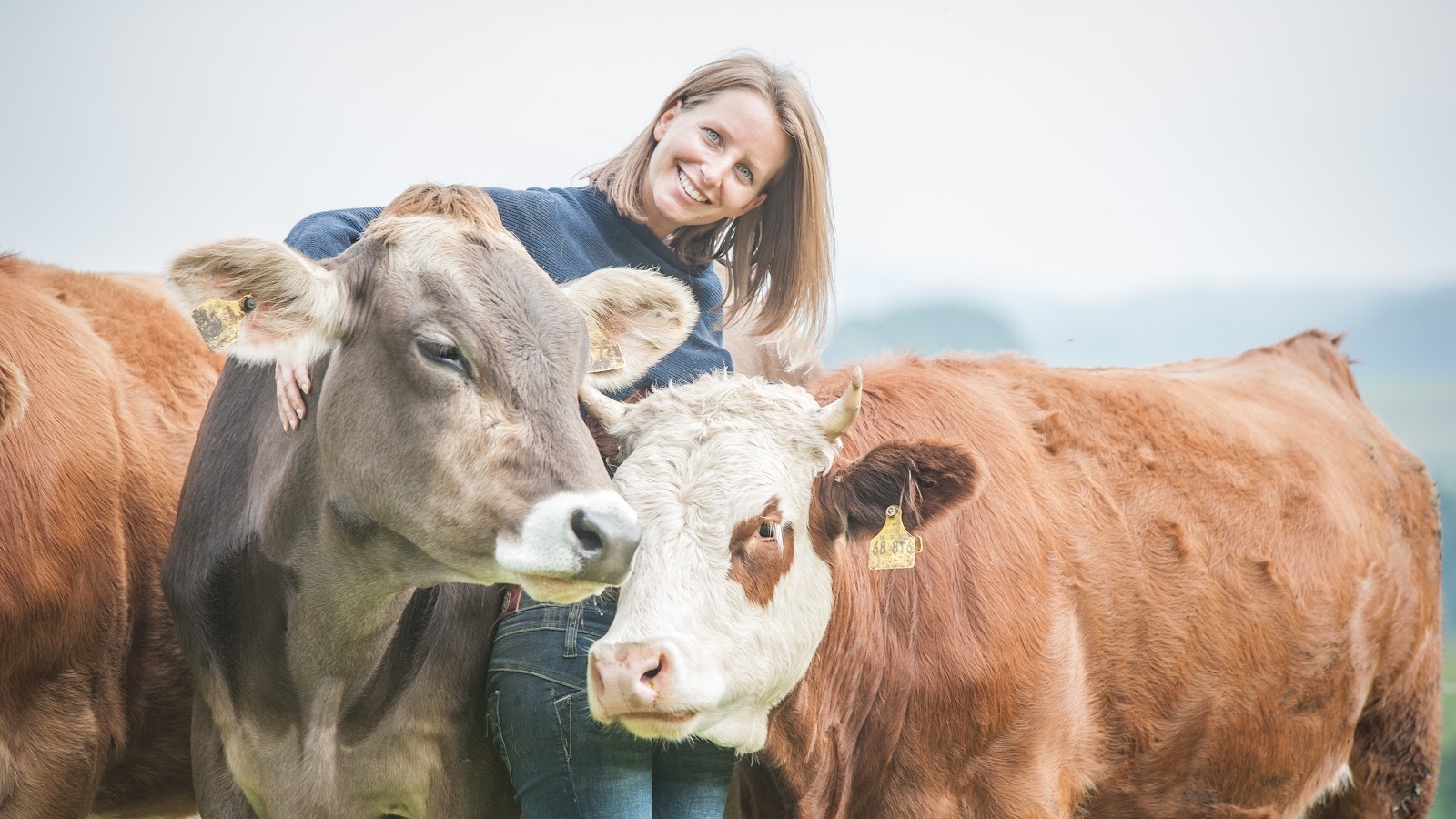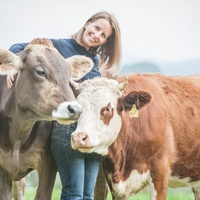H.O.P.E The Documentary: A Film Teaching the World About Industrialized Farming
The latest documentary to hit Food Matters TV, H.O.P.E. What You Eat Matters, shows how simply changing what we put on our plates and moving towards a plant-based diet, can restore our body's health and our planet´s balance.
The filmmaker, behind this inspiring documentary, joins us today to answer a few questions about her drive behind creating the film, her thoughts on the state of our food system and her tips for eating sustainably. Watch the trailer below.
It has a clear message: By changing our eating habits, we can change the world. We love getting to know the filmmakers that feature their amazing films on Food Matters TV, so we sat down with Nina Messinger to learn more about her mission in sharing this film with the world!
Food Matters: What was your drive behind making H.O.P.E.?
Nina: I couldn't stand by in silence any more as the destructive and self-destructive machinery of the western industrialized countries turned faster and more murderously. I wanted to do everything I could to stop this and offer solutions. Meat and dairy consumption goes up and up, and with it the agony and misery of animals in animal factories and slaughterhouses increases. At the same time, environmental degradation caused by our animal-based diet as well as diet and lifestyle-related health issues like obesity, diabetes or cardiovascular disease are already increasing among children and adolescents. I wanted to show these connections and document them through interviews with experts, patients, activists, farmers, slaughterhouse workers and so on. In this way, I wanted to contribute to the emergence of a world where we respect and preserve nature and, in which, we can age healthily, physically and psychologically.
In my documentary H.O.P.E. What You Eat Matters, I show how we can get a little bit closer to these goals through our daily food choices. Through a conscious, plant-based diet, we can stop, or at least significantly reduce the suffering we inflict on animals - suffering that comes back to haunt us in the form of environmental degradation and damages to our health. I think that's a great opportunity, and I’ve chosen to share it with the world through my film.
Food Matters: From all your learnings during the making of your film, what has been a standout?
Nina: The most important insight that I was able to gain during filming, and above all through my conversations with all my wonderful interviewees, was into the connections between animal suffering, environmental destruction and human suffering in the form of physical and mental illness. And, at the same time, I realized that the suffering we are inflicting on the farmed animals could be stopped immediately because it is unnecessary given the abundance of healthy and delicious alternatives available to us. These alternatives do not mean renunciation, but enjoyment and benefits, because the options on offer in the once dull restaurants and shops, will satisfy even the most demanding palates - without being prohibitively expensive.
Food Matters: Do you think our food systems are changing?
Nina: Yes, our food system is changing fundamentally as more and more critical, well-informed consumers are forcing manufacturers to change their product line to plant-based, healthier foods. This change is still affecting western industrialized countries in particular, but more and more countries are following suit, recognizing that their population can no longer feed themselves with resource-destroying animal-based foods and that the explosive increase in diet-related lifestyle diseases comes at the social cost of health.
Food Matters: What choices do you make daily to support sustainable farming practices?
Nina: I only buy organic products and pay attention to regionality and seasonality. In this way, I support the small organic farmers, who in turn promote and strengthen biodiversity. And for my own garden, I buy seeds and plants from an organization that preserves and cares for endangered vegetables, fruits and grains.
Food Matters: What are your top 5 favorite documentaries?
Nina: Forks over Knives, Heal, Peaceable Kingdom, Tomorrow and Plastic Planet.
Food Matters: Do you think going vegetarian or vegan is the way of the future?
Nina: Definitely. The shift from an animal-based to a vegetarian and, more and more, a vegan diet is in full swing now and, in my opinion, also necessary. A plant-based diet is not only healthier, but also more environmentally friendly and more sustainable. And the more science reveals about animals' astonishing sensitivity to consciousness, the less justifiable the tremendous torment of our fellow creatures that we degraded to livestock.
More and more consumers are taking this ethical aspect of diet into account. The result is a movement based on knowledge and responsibility that is unlikely to stop or turn back. In addition, politicians must make new nutritional decisions: We have more and more people on the planet. If we continue eating like this, in just a few decades there will not be enough water to farm the arable land needed to produce the feed for the farmed animals. Not to mention, the increasing leaching of soils, the rapidly progressing extinction of species and the poisoning of earth, water and air by the animal-based agribusiness.
Food Matters: What’s on your bedside table (what are you reading)?
Nina: The German version of „How Not To Die: Discover the foods scientifically proven to prevent and reverse disease“ by Dr. Michael Greger.
Food Matters: After watching the film, what should one do to make more conscious food choices?
Nina: Buy more organic vegetable products and pay attention to regionality and seasonality, and enjoy these lovingly and carefully produced foods with all of your senses.
Food Matters: Almond, soy or oat milk?
Nina: There are now a huge variety of milk alternatives - soy milk, almond milk, oat milk, rice milk, hazelnut milk, etc. The best for optimal health is self-produced milk, as it contains no emulsifiers or preservatives. Personally, I prefer homemade almond milk.
If you haven’t already, join our free global challenge at www.GetOffTheGluten.com to receive daily recipes & health tips, access to our private group for support and inspiration, plus before and after testing to track your progress in key areas of your life such as weight, sleep, bloating, skin-conditions, mental health and more!


